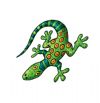|
ESL Forum:
Techniques and methods
in Language Teaching
Games, activities
and teaching ideas
Grammar and
Linguistics
Teaching material
Concerning
worksheets
Concerning
powerpoints
Concerning online
exercises
Make suggestions,
report errors
Ask for help
Message board
|
ESL forum >
Message board > comparative adjectives.
comparative adjectives.
|

eng789

|
comparative adjectives.
|
|
The comparative form of unique is???????
uniquer
or more unique
Thanks
Barbara |
2 Jun 2010
|
|
|
|
|
|

yanogator

|
|
Actually, it �s a matter of much discussion. Since "unique" means "one of a kind", it is impossible for one thing to be "more one of a kind" than another, so many people say that there is no comparative or superlative form. However, if you want to use one, it is definitely "more unique", as "catturn" said.
Bruce |
2 Jun 2010
|
|
|
|
|

Apodo

|
|
Unique means �one of a kind �. There is no comparative.
If comparisons are needed it would be better to choose different words. |
2 Jun 2010
|
|
|

Babs1966

|
It would be great to see the kind of sentence you wanna use it in as depending on the meaning, an other word would fit better since unique is unique  |
2 Jun 2010
|
|
|

LILIAAMALIA

|
There is no comparative form for unique. |
2 Jun 2010
|
|
|

jocruz

|
But is it not correct to say something like:
That is the most unique painting I have ever seen.
or
eg. Animal cells are more unique than plant cells.
??
|
2 Jun 2010
|
|
|

lshorton99

|
I agree with everyone else - you can �t have something be more unique than another thing! In those sentences, jocruz, you would probably use �distinctive � instead of �unique �.
Lindsey
|
2 Jun 2010
|
|
|

yanogator

|
|
Jocruz,
Remember that "unique" means "the only one", so does it make sense to say "the most only one"?
That is the most only one painting I have ever seen.
Animal cells are more the only one than plant cells.
Something can be the most unusual, but not the most unique.
Now, this is not to say that people don �t use "more unique" and "the most unique".
Bruce |
2 Jun 2010
|
|
|

jocruz

|
I found the following in http://dictionary.reference.com/browse/unique, which probably explains why I �ve heard the expressions �more � and �most unique � before :
The earliest meanings of unique when it entered
English around the beginning of the 17th century were �single, sole�
and �having no equal.� By the mid-19th century unique had developed a wider meaning, �not typical, unusual,� and it is in this wider sense that it is compared: The foliage on the late-blooming plants is more unique than that on the earlier varieties. The comparison of so-called absolutes in senses that are not absolute is standard in all varieties of speech and writing.
Usage Note: For many grammarians, unique is the
paradigmatic absolute term, a shibboleth that distinguishes between
those who understand that such a term cannot be modified by an adverb
of degree or a comparative adverb and those who do not. These
grammarians would say that a thing is either unique or not unique and
that it is therefore incorrect to say that something is very unique or more unique than something else. Most of the Usage Panel supports this traditional view. Eighty percent disapprove of the sentence Her designs are quite unique in today �s fashions. But as the language of advertising in particular attests, unique
is widely used as a synonym for "worthy of being considered in a class
by itself, extraordinary," and if so construed it may arguably be
modified. In fact, unique appears as a modified adjective in the work of many reputable writers. A travel writer states that "Chicago is no less unique an American city than New York or San Francisco," for example, and the critic Fredric Jameson writes "The great modern writers have all been defined by the invention or production of rather unique styles." Although these examples of the qualification of unique are defensible, writers should be aware that such constructions are liable to incur the censure of some readers.
|
2 Jun 2010
|
|
1
2
Next >
|